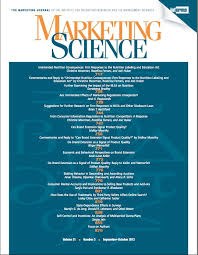
Urban, G., Liberali, G., Bordley, R., Macdonald, E. and Hauser, J. (2014). Morphing Banner Advertising Marketing Science, 33(1):27--46.
-
Affiliated author
-
Publication year2014
-
JournalMarketing Science
Researchers and practitioners devote substantial effort to targeting banner advertisements to consumers, but they focus less effort on how to communicate with consumers once targeted. Morphing enables a website to learn, automatically and near optimally, which banner advertisements to serve to consumers to maximize click-through rates, brand consideration, and purchase likelihood. Banners are matched to consumers based on posterior probabilities of latent segment membership, which are identified from consumers' clickstreams. This paper describes the first large-sample random-assignment field test of banner morphing¿more than 100,000 consumers viewed more than 450,000 banners on CNET.com. On relevant Web pages, CNET's click-through rates almost doubled relative to control banners. We supplement the CNET field test with an experiment on an automotive information-and-recommendation website. The automotive experiment replaces automated learning with a longitudinal design that implements morph-to-segment matching. Banners matched to cognitive styles, as well as the stage of the consumer's buying process and body-type preference, significantly increase click-through rates, brand consideration, and purchase likelihood relative to a control. The CNET field test and automotive experiment demonstrate that matching banners to cognitive-style segments is feasible and provides significant benefits above and beyond traditional targeting. Improved banner effectiveness has strategic implications for allocations of budgets among media. online advertising banner advertising behavioral targeting context matching website morphing cognitive styles field experiments electronic marketing dynamic programming bandit problems strategic optimization of marketing